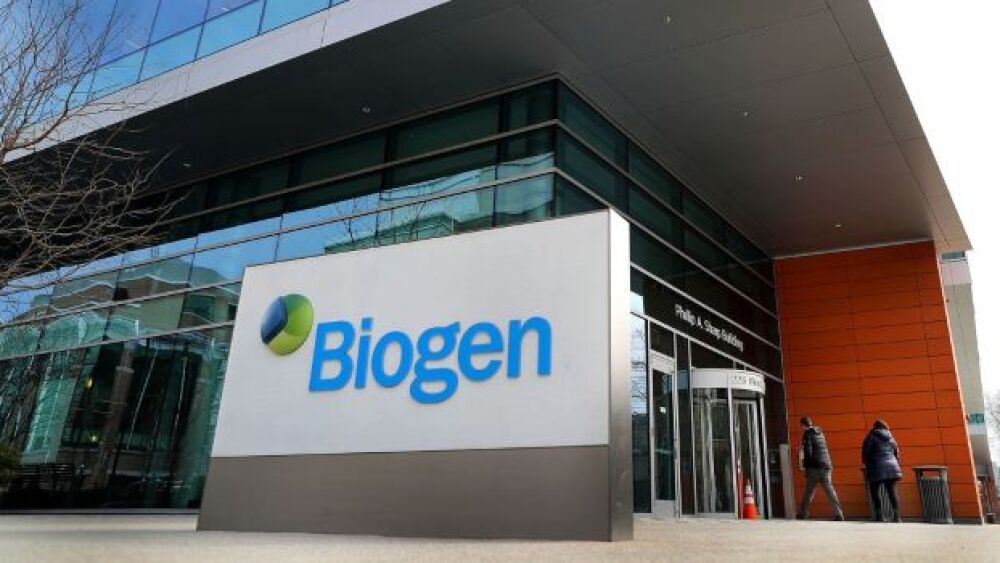Biogen returned the rights to a dry age-related macular degeneration (dAMD) drug to Catalyst Biosciences. Biogen also ended the partnership regarding other dry AMD.
Catalyst marks the rights of dry AMD drugs as a potential to gain market success. (Courtesy of John Tlumacki of The Boston Globe/Gett)
Biogen returned the rights to a dry age-related macular degeneration (dAMD) drug to Catalyst Biosciences. The company also ended the partnership on any other potential treatments for dry AMD. The drug, CB 2782-PEG, is a C3-degrader.
“We are delighted to regain the rights to CB 2782-PEG, which unlocks the full potential of our complement proteases in ophthalmology,” stated Nassim Usman, CEO of Catalyst in a press release. “We now have two wholly-owned, potentially best-in-class development candidates, CB 2782-PEG and CB 4332, a long half-life complement factor I fusion, each targeting clinically validated mechanisms in dry AMD. Dry AMD, a leading cause of blindness in its severe form for which there are no currently approved drugs, represents a significant market opportunity, estimated at over $10 billion.”
About the Dry AMD Drug Deal
The two companies inked the global license and collaboration deal in December 2019. The drug was to be developed for dry AMD and geographic atrophy (GA). Under the deal, Biogen received an exclusive global license to develop and commercialize the drug and Catalyst’s other anti-C3 proteases. Catalyst was to run preclinical and manufacturing activities.
Biogen would pay for the preclinical work and manufacturing and then run Investigational New Drug (IND)-enabling activities, global clinical development, and commercialization. Biogen paid Catalyst $15 million upfront and there were $340 million in potential clinical, regulatory and commercial milestones, as well as possible tiered royalties.
Other than this dry AMD drug rights issue, in May 2021, Biogen reported another failure in its ophthalmology program. It reported on May 14 that its Phase II/III XIRIUS trial of cotoretigene toliparvovec for X-linked retinitis pigmentosa (XLRP) did not meet its primary endpoint of improvement in the proportion of treated eyes. Cotoretigene toliparvovec is an experimental AAV8 vector-based gene therapy administered by subretinal injection. It is engineered to increase functioning retinitis pigmentosa GTPase regulator (RPGR) protein.
For its part, Catalyst Biosciences appears to be struggling. In February, the company retained Perella Weinberg Partners to act as a financial advisor to help it explore “strategic alternatives,” noting that the company is looking to monetize its hemophilia assets and find partners to develop its portfolio of complement assets.
Company shares have plunged from about $5.0 per share to approximately $0.60 per share over the last six months. The biggest hit came in November 2021, when Catalyst announced it was halting clinical development of MarzAA and looking for a buyer for its hemophilia assets.
“We have made a strategic decision to stop the clinical development of MarzAA (engineered FVIIa) and focus solely on our complement programs and protease medicines platform,” Usman said at the time. “Based on several factors including a recently updated feasibility assessment, we determined that we cannot continue to develop MarzAA through completion of the ongoing trials. Enrollment in our MarzAA clinical trials has been adversely impacted by several factors, including pandemic-related logistical challenges, competition for subjects, and increasing availability of prophylaxis therapy globally. Given these factors, it is no longer feasible for us to deliver topline data in 2022. We will report on the data obtained in the Crimson-1 trial to date showing that we have successfully treated bleeds with subcutaneous (SQ) MarzAA and have not observed any treatment-related adverse or thrombotic events.”
Halting development of MarzAA allowed the company to cut its burn rate by about 40%.
On January 25, 2022, the company announced the U.S. Food and Drug Administration (FDA) granted its CB 4332 Rare Pediatric Disease Designation (RPDD) for Complement Factor I(CFI) Deficiency (CFID).





